Leviticus 3 meaning explained in AI Summary
The Peace Offering
- Varieties of Thanksgiving: This chapter describes the peace offering, a sacrifice expressing thanksgiving, joy, or a vow of fellowship with God. There were three variations: offerings from the herd, the flock, or birds.
- Shared Meal: Unlike the burnt offering, which was entirely consumed by fire, portions of the peace offering were shared by the offerer, the priest, and God (represented by the fire on the altar). This emphasized a sense of communion and shared joy.
- Specific Requirements: The chapter outlines specific requirements for each type of peace offering. Animals had to be without blemish, and specific portions were designated for burning on the altar and for the priests.
Chapter 3 of Leviticus outlines the instructions for peace offerings, also known as "fellowship offerings." These offerings are distinct from burnt offerings (which were entirely burnt) and sin offerings (which atoned for specific sins). Peace offerings were a way for the Israelites to commune with God and celebrate their relationship with Him.
of the chapter:
1. Types of Animals: The offerings could be from the herd (bulls or cows) or the flock (sheep or goats). Both male and female animals were acceptable, as long as they were without defect. (Leviticus 3:1-6)
2. The Offering Ritual:
* The offerer would lay their hand on the animal's head, signifying their identification with the sacrifice.
* The animal was then slaughtered at the entrance of the Tent of Meeting.
* The priests would sprinkle the blood around the altar.
* Specific parts of the animal, including the fat, kidneys, and lobe of the liver, were burned on the altar as a "food offering" to God. (Leviticus 3:2-5)
3. Variations Based on Animal:
* Offerings from the Herd: The fat covering the entrails, the kidneys and fat on them, and the fatty lobe of the liver were all burned on the altar. (Leviticus 3:3-5)
* Offerings from the Flock: The entire fat tail, the fat covering the entrails, the kidneys and fat on them, and the fatty lobe of the liver were all burned on the altar. (Leviticus 3:9-10)
4. Prohibition of Eating Fat and Blood: God explicitly forbids the Israelites from eating the fat of cattle, sheep, or goats. The blood of any animal was also forbidden. This emphasizes the sacred nature of these elements and their exclusive dedication to God. (Leviticus 3:17)
Overall, Leviticus Chapter 3 emphasizes the importance of:
- Fellowship with God: Peace offerings were a way for the Israelites to express gratitude, celebrate their relationship with God, and share a meal in His presence.
- Obedience and Holiness: Following God's specific instructions for the offering demonstrated the Israelites' commitment to living holy lives and honoring Him.
- The Sacredness of Fat and Blood: The prohibition against consuming these elements highlights their symbolic connection to life and their exclusive dedication to God.
This chapter provides valuable insight into the religious practices of the Israelites and their understanding of their covenant relationship with God.
Leviticus 3 bible study ai commentary
Leviticus chapter 3 details the laws for the Peace Offering (Hebrew: Shelamim), a voluntary sacrifice unique among the offerings. Unlike the Burnt Offering, which was wholly consumed, the Peace Offering was shared, symbolizing a communion meal between God, the priest, and the worshipper. It represents the peace, wholeness, and fellowship that a person in a right covenant relationship with God can enjoy. The sacrifice establishes that this peace is not achieved independently but is founded upon atonement (the blood shed) and giving God the honor He is due (the fat portions).
Leviticus 3 context
The regulations in Leviticus were given to Israel at Mount Sinai after the construction of the Tabernacle. This context is crucial. God now dwells in their midst, and these rituals instruct them on how to approach Him and maintain fellowship. The Peace Offering was typically offered out of thanksgiving, to fulfill a vow, or as a freewill expression of devotion. In the ancient Near East, sharing a meal was a profound symbol of peace, trust, and covenant. Thus, the Peace Offering was a sacred "covenant meal" where the worshipper, in essence, "dined with God," solidifying their relationship of shalom (peace, wellness, completion).
Leviticus 3:1
‘If his offering is a sacrifice of peace offering, if he offers an animal from the herd, whether male or female, he shall offer it without blemish before the LORD.
In-depth-analysis
- Peace offering: The Hebrew is zebaḥ šĕlāmîm. This is derived from the root word shalom, which means peace, wholeness, wellness, and completeness. This is not just an absence of conflict, but a positive state of well-being and right relationship.
- Voluntary: The phrasing "If his offering is..." indicates this was not a mandatory sacrifice for sin but a voluntary expression of a heart at peace with God.
- From the herd, male or female: Unlike the Burnt Offering (Lev 1), which required a male, this offering allows for a female. This greater flexibility suggests its focus is less on the legal substitutionary aspect and more on fellowship and celebration, making it more accessible to the average Israelite.
- Without blemish: The requirement for a perfect animal remains. Fellowship with a holy God requires our absolute best, a standard perfectly fulfilled by Christ.
Bible references
- Colossians 1:20: "...and through him to reconcile to himself all things... making peace by the blood of his cross." (Christ's sacrifice is the ultimate Peace Offering, achieving shalom between God and man).
- Ephesians 2:14: "For he himself is our peace, who has made us both one..." (Jesus not only makes peace; He is our peace).
- 1 Peter 1:19: "...but with the precious blood of Christ, like that of a lamb without blemish or spot." (Christ as the perfect, unblemished sacrifice required by the law).
Cross references
Exod 24:9-11 (Elders eating in God's presence), Num 6:17 (part of the Nazirite vow completion), 1 Cor 10:16-18 (fellowship and partaking in the altar), Rev 3:20 (eating in fellowship with Jesus).
Leviticus 3:2
He shall lay his hand on the head of his offering and kill it at the entrance of the tent of meeting, and Aaron's sons the priests shall throw the blood against the sides of the altar.
In-depth-analysis
- Lay his hand on the head: An act of identification. The worshipper identifies with the offering, dedicating it to God and signifying that it is presented on his behalf. Here, it conveys that the worshipper’s peace is represented by and grounded in this sacrificed life.
- Kill it at the entrance: The act of taking a life, even for a peace offering, must happen at the Tabernacle, before God. This shows that life and death are under God’s sole authority, and fellowship with Him is on His terms, based on shed blood.
- Throw the blood against the sides of the altar: Blood represents life (Lev 17:11). Presenting the blood to God acknowledges that life belongs to Him. Atonement, the cleansing power of shed blood, is the non-negotiable foundation for fellowship. Without the blood on the altar, there could be no shared meal.
Bible references
- Leviticus 1:4-5: "He shall lay his hand on the head of the burnt offering... then he shall kill the bull before the LORD..." (The procedure of identification and slaughter is parallel, showing a common principle for all bloody sacrifices).
- Hebrews 9:22: "Indeed, under the law almost everything is purified with blood, and without the shedding of blood there is no forgiveness of sins." (The absolute necessity of shed blood for any access to God).
- 1 John 1:7: "...and the blood of Jesus his Son cleanses us from all sin." (The reality to which the sprinkling of blood pointed).
Cross references
Lev 17:11 (life is in the blood), Exod 29:16 (blood of the ram of ordination), Isa 53:6 (identification with the substitute), 2 Cor 5:21 (identification with Christ).
Leviticus 3:3-5
And from the sacrifice of the peace offering, as a food offering to the LORD, he shall offer the fat covering the entrails and all the fat that is on the entrails, and the two kidneys with the fat that is on them at the loins, and the long lobe of the liver, which he shall remove with the kidneys. Then Aaron's sons shall burn it on the altar on top of the burnt offering, which is on the wood on the fire; it is a food offering with a pleasing aroma to the LORD.
In-depth-analysis
- God’s Portion: This specific list of fatty parts constitutes "the food of the offering" given to the Lord. Fat was considered the richest, choicest, and most energy-dense part of the animal. Giving it to God was an act of honor, presenting Him with the very best.
- Internal Fat: Significantly, this is the internal, unseen fat, not the subcutaneous fat or muscle. This can symbolize offering God our innermost devotion and richest affections—the "best" of our inner being.
- On top of the burnt offering: This detail is theologically profound. The Peace Offering (fellowship) is placed on top of the Burton Offering (atonement/total surrender). This shows that communion with God can only happen on the foundation of substitutionary atonement. There is no fellowship without prior surrender and reconciliation.
- Pleasing aroma: This phrase indicates God's acceptance and pleasure in the offering. It signifies that the relationship is sound and the fellowship is sweet to Him.
Bible references
- Genesis 4:4: "and Abel also brought of the firstborn of his flock and of their fat portions. And the LORD had regard for Abel and his offering." (Giving the fat portions to God is a primordial act of proper worship).
- Leviticus 7:25: "For whoever eats the fat of an animal of which a food offering may be made to the LORD, that person shall be cut off from his people." (The fat is exclusively for God, underscoring its sanctity).
- Ephesians 5:2: "...Christ... gave himself up for us, a fragrant offering and sacrifice to God." (Christ’s perfect sacrifice is the ultimate "pleasing aroma" to the Father).
Cross references
Lev 1:9 (pleasing aroma of burnt offering), Exod 29:13 (parallel for ordination offering), Isa 1:11 (God's rejection of sacrifice without a right heart).
Leviticus 3:6-11
If his offering for a sacrifice of peace offering to the LORD is from the flock, male or female, he shall offer it without blemish. If he offers a lamb... then he shall kill it before the tent of meeting... He shall offer its fat, the whole fat tail cut off close to the backbone, and the fat covering the entrails... and the two kidneys... a food offering to the LORD.
In-depth-analysis
- From the flock: The law now makes provision for a less-costly animal (a sheep or goat), ensuring that Israelites of lesser means could also participate in this offering of fellowship.
- Whole fat tail: This refers to the
’alyâ, the broad tail of a specific breed of Near Eastern sheep which was a large, fatty appendage considered a delicacy. Its inclusion as part of God’s portion again emphasizes that the very best and choicest parts are reserved for Him, according to the specific type of animal offered. - Food offering to the LORD: The Hebrew
leḥem ’iššehliterally means "bread (or food) of the fire-offering." This anthropomorphic language doesn't imply God needs to eat, but rather powerfully visualizes God’s personal reception and enjoyment of the offering, reinforcing the "shared meal" concept.
Bible references
- John 1:29: "Behold, the Lamb of God, who takes away the sin of the world!" (The lamb is a key symbol of sacrifice, here used for a fellowship offering).
- Malachi 1:8: "When you offer blind animals in sacrifice, is that not evil? And when you offer those that are lame or sick, is that not evil? Present that to your governor; will he accept you...?" (God demands the best, not leftovers, reinforcing the "without blemish" and "fat portion" principles).
Cross references
Exod 12:3-6 (the Passover lamb), 1 Sam 9:24 (the best portion given to an honored guest, Saul), Luke 15:23 (the fatted calf for the returning son's feast).
Leviticus 3:12-16
If his offering is a goat, he shall present it before the LORD... and kill it before the tent of meeting... and from it he shall present his offering as a food offering to the LORD, the fat covering the entrails... and the two kidneys... and the priest shall burn them on the altar as a food offering with a pleasing aroma. All the fat is the LORD’s.
In-depth-analysis
- A goat: The third and most common type of animal available to the poor is included, ensuring universal access to this celebratory offering. The principles remain identical.
- All the fat is the LORD’s: This verse powerfully summarizes the core principle of verses 3-16. It is an absolute, non-negotiable decree. Fat represents richness, abundance, and the best of the animal. Giving this exclusively to God is an acknowledgment of His supreme Lordship and that He deserves our ultimate devotion.
Bible references
- Ezekiel 44:15: "...they shall stand before me to offer me the fat and the blood, declares the Lord GOD." (In the visionary temple, the principle of God's right to the fat and blood remains central).
- Psalm 24:1: "The earth is the LORD’s and the fullness thereof..." (Ascribing the "best" to God is a reflection that everything ultimately belongs to Him).
- Matthew 25:32-33: "...and he will separate people one from another as a shepherd separates the sheep from the goats." (Goats are often used in sacrificial law and in parables representing a distinct group).
Cross references
Lev 4:27-31 (a goat for a sin offering), Heb 13:11 (the bodies of animals whose blood is brought in are burned outside the camp).
Leviticus 3:17
It shall be a perpetual statute for your generations in all your dwellings: you shall not eat any fat or any blood.”
In-depth-analysis
- Perpetual statute for your generations: This command is permanent and binding on Israel throughout its history. It transcends the Tabernacle ritual and becomes a daily dietary law.
- In all your dwellings: Unlike the sacrificing itself, which was centralized at the Tabernacle/Temple, this prohibition applies everywhere. It was a constant, daily reminder of fundamental truths.
- You shall not eat any fat: This refers to the specific types of internal suet-fat (
chelev) listed in the sacrificial law, not all fat within meat. It reserves the "best" (symbolically) for God at all times. - or any blood: The prohibition against consuming blood is absolute. Life belongs to God, and blood is its symbol. Consuming it would be trespassing on the divine prerogative and profaning the very element God designated for atonement.
Polemics
Many pagan rituals in the ANE involved the drinking of blood to ingest the life force or spirit of the animal or a deity. This absolute prohibition starkly separated Israel from its neighbors, establishing a worship based on reverence for the Creator of life, not manipulation of life-forces.
Bible references
- Leviticus 17:11, 14: "For the life of the flesh is in the blood... Therefore I have said to the people of Israel, You shall not eat the blood of any creature, for the life of every creature is its blood." (The explicit theological reason for the blood prohibition).
- Genesis 9:4: "But you shall not eat flesh with its life, that is, its blood." (This command predates the Mosaic Law, given to all humanity through Noah).
- Acts 15:20, 29: "but should write to them to abstain from the things polluted by idols, and from sexual immorality, and from what has been strangled, and from blood." (The Jerusalem Council upheld the blood prohibition for Gentile believers, not as a means of salvation, but as a universal principle of respecting God as the author of life and distinguishing the church from pagan practices).
Leviticus chapter 3 analysis
- The Trinity of Fellowship: The Peace Offering is unique in its three-way participation. 1. God receives the blood (life) and fat (best) on the altar. 2. The Priest receives his prescribed portion (e.g., the breast and thigh, see Lev 7:29-34). 3. The Worshipper and their family receive the remaining meat to eat in a celebratory meal. This beautifully illustrates true communion—vertical (with God) and horizontal (with God's representatives and one's family).
- Christ, Our Peace: The New Testament interprets Jesus Christ as the fulfillment of this offering. He is our peace (Eph 2:14) who made fellowship with God possible through His sacrificial death. The Lord's Supper is the New Covenant's fellowship meal, where believers celebrate the peace and communion purchased by Christ's blood.
- The Gospel in the Offerings: Placed in sequence, the first three offerings reveal a gospel pattern.
- Burnt Offering (Lev 1): Total substitution and atonement, dealing with the problem of sin. Foundation.
- Grain Offering (Lev 2): An act of devotion and dedication of the "fruit of one's labor" to God. A response to atonement.
- Peace Offering (Lev 3): The result is fellowship and communion with God. The celebration of a restored relationship. One cannot have fellowship (ch. 3) without atonement (ch. 1).
- The Sacredness of Life and Honor: The chapter's final, perpetual statute on fat and blood instills two core biblical principles into the daily life of Israel: 1. All life is sacred and belongs to its Creator (blood). 2. God is worthy of our best, our richest devotion (fat).
Leviticus 3 summary
Leviticus 3 outlines the rules for the voluntary Peace Offering (Shelamim), available from the herd or flock. This sacrifice uniquely resulted in a shared meal between God (who received the blood and fat), the priest, and the worshipper, symbolizing the shalom—peace and fellowship—that exists in a covenant relationship with Him. It teaches that communion with God is predicated upon atonement and the giving of one's best to Him, foreshadowing the ultimate peace made possible through the sacrifice of Jesus Christ.
Leviticus 3 AI Image Audio and Video

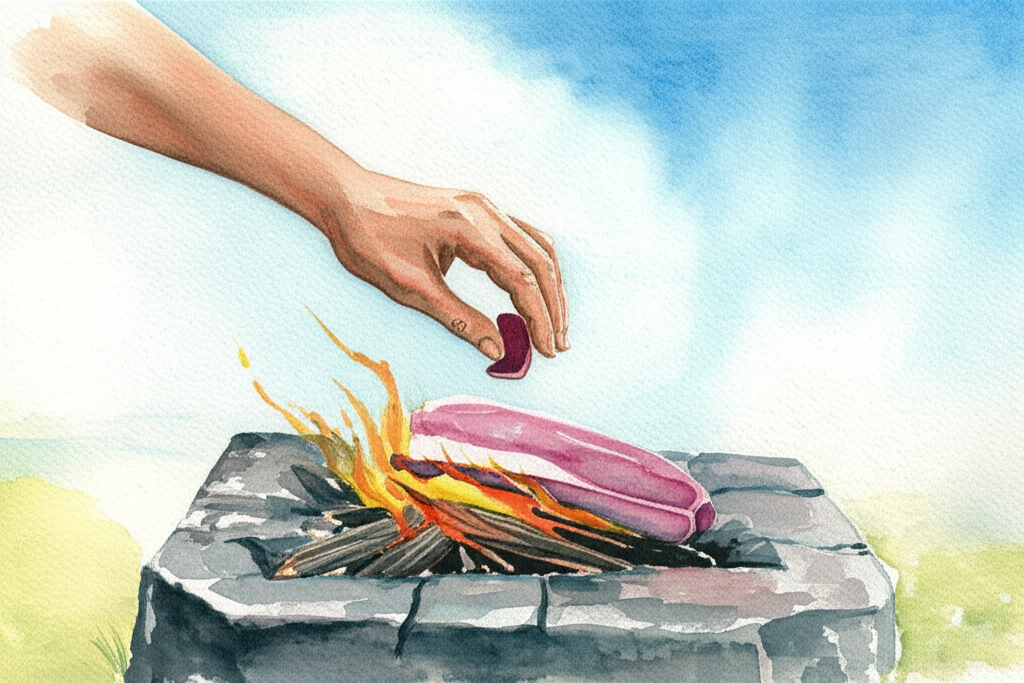
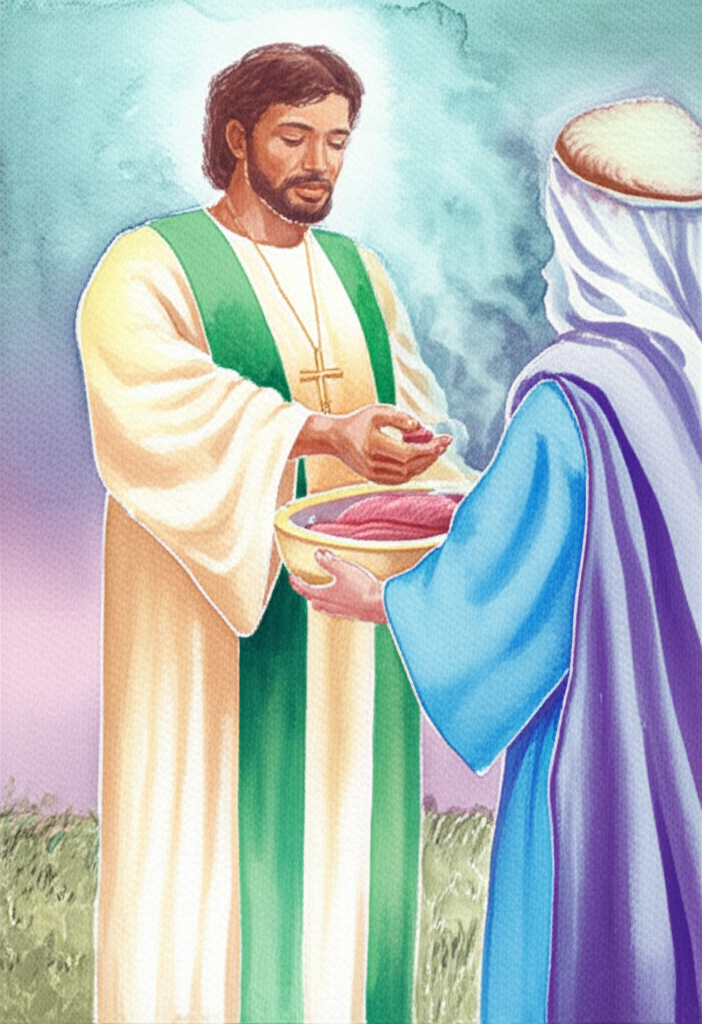
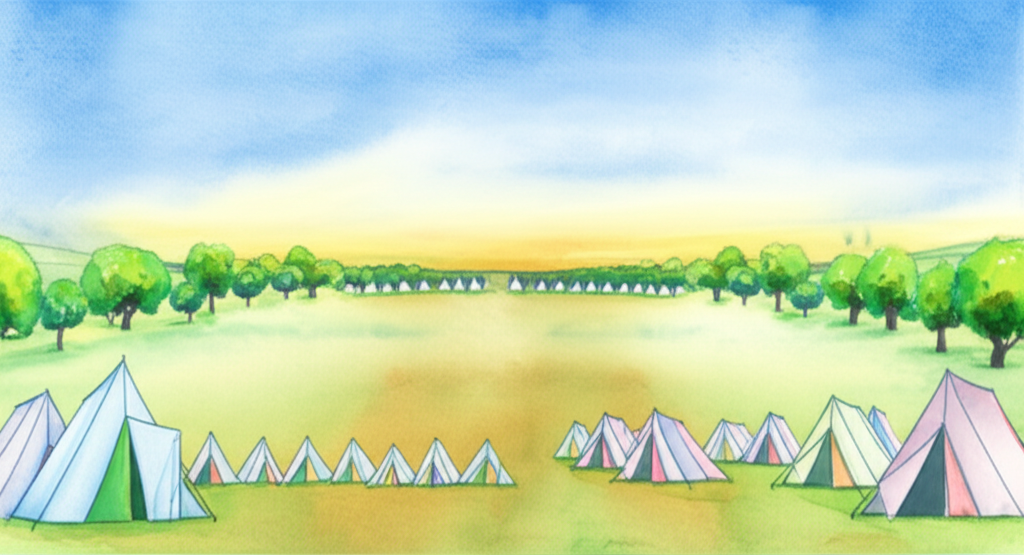
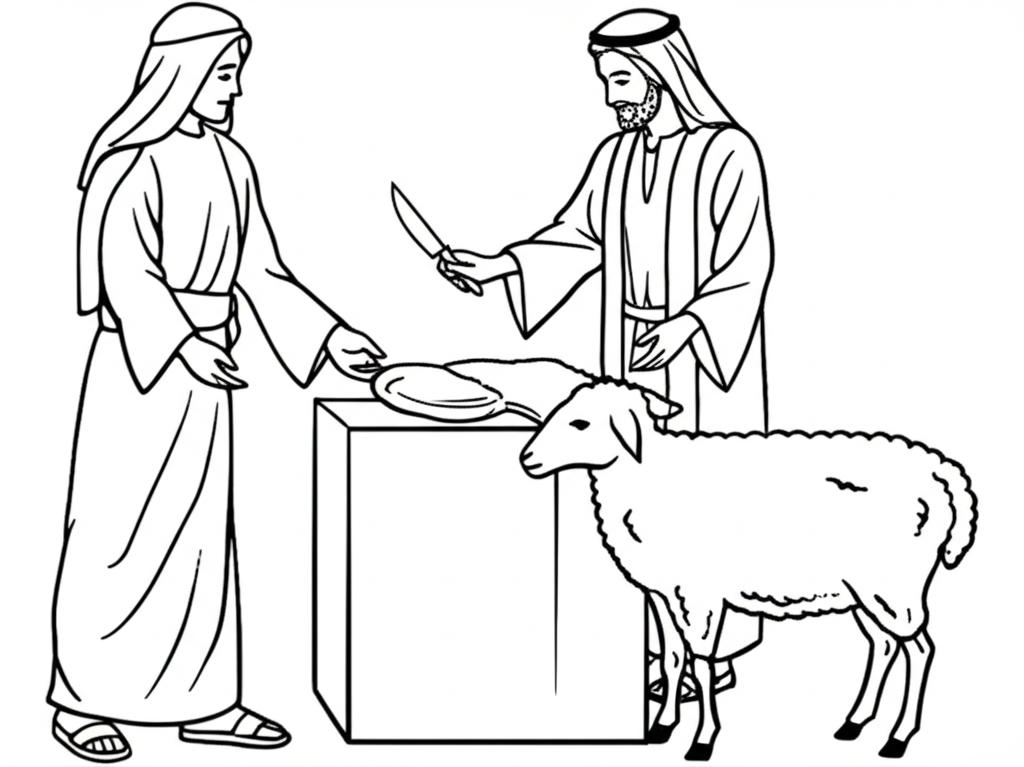
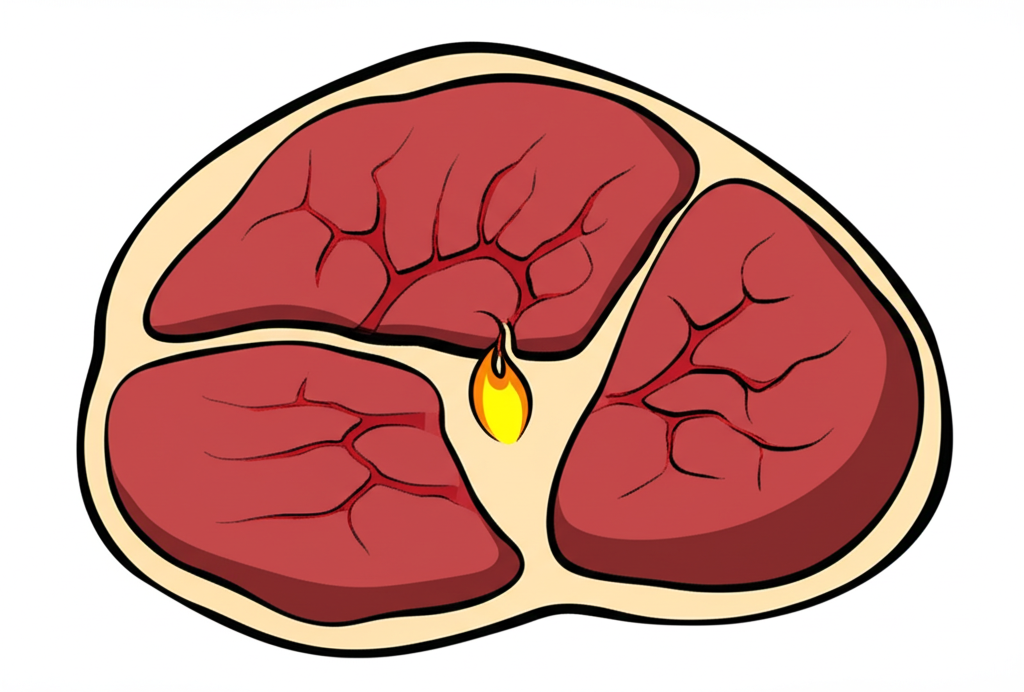
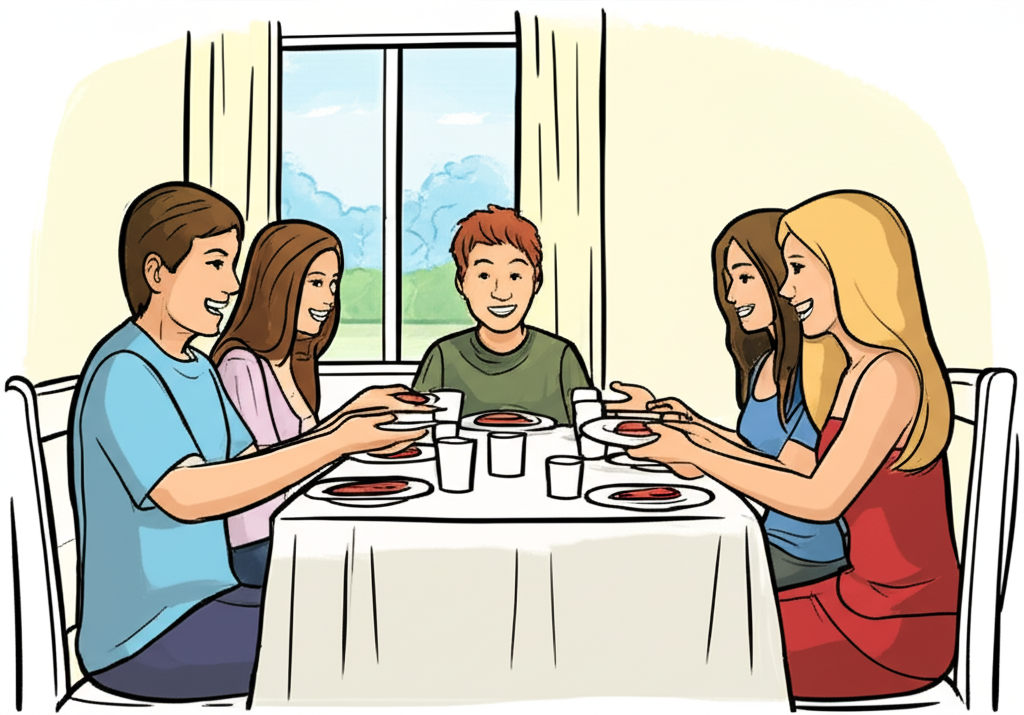
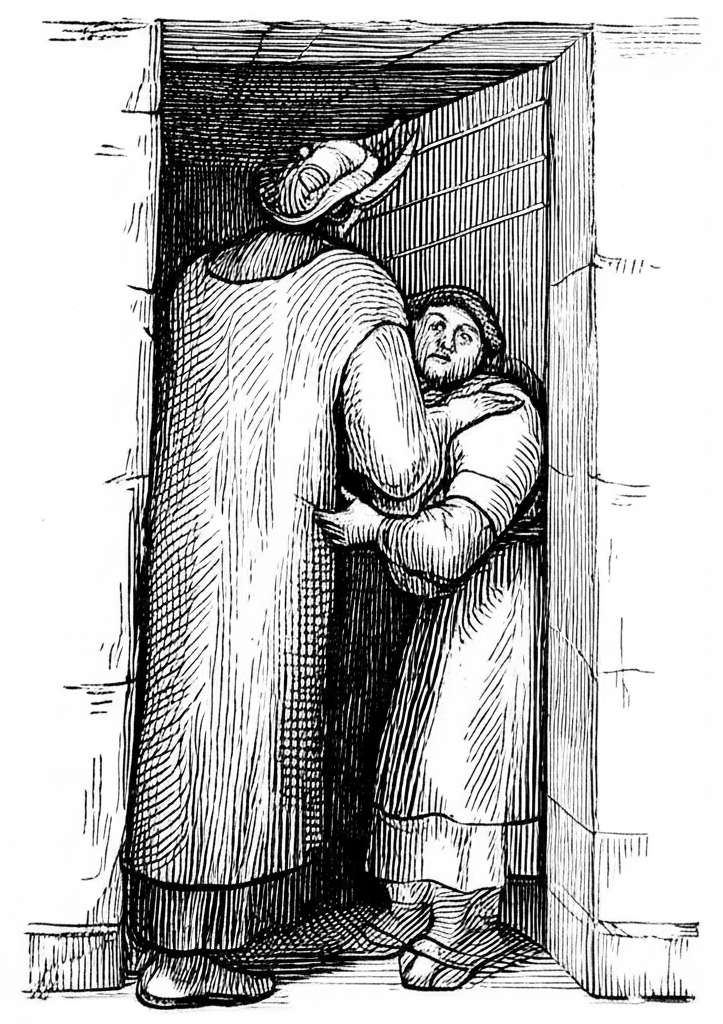
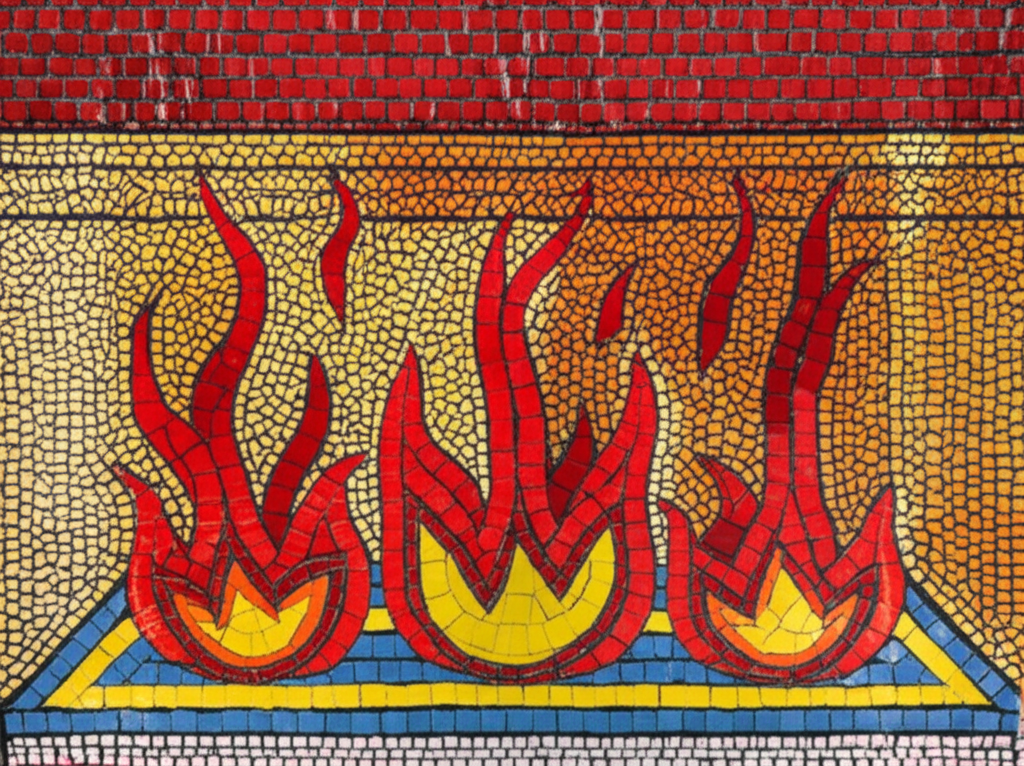
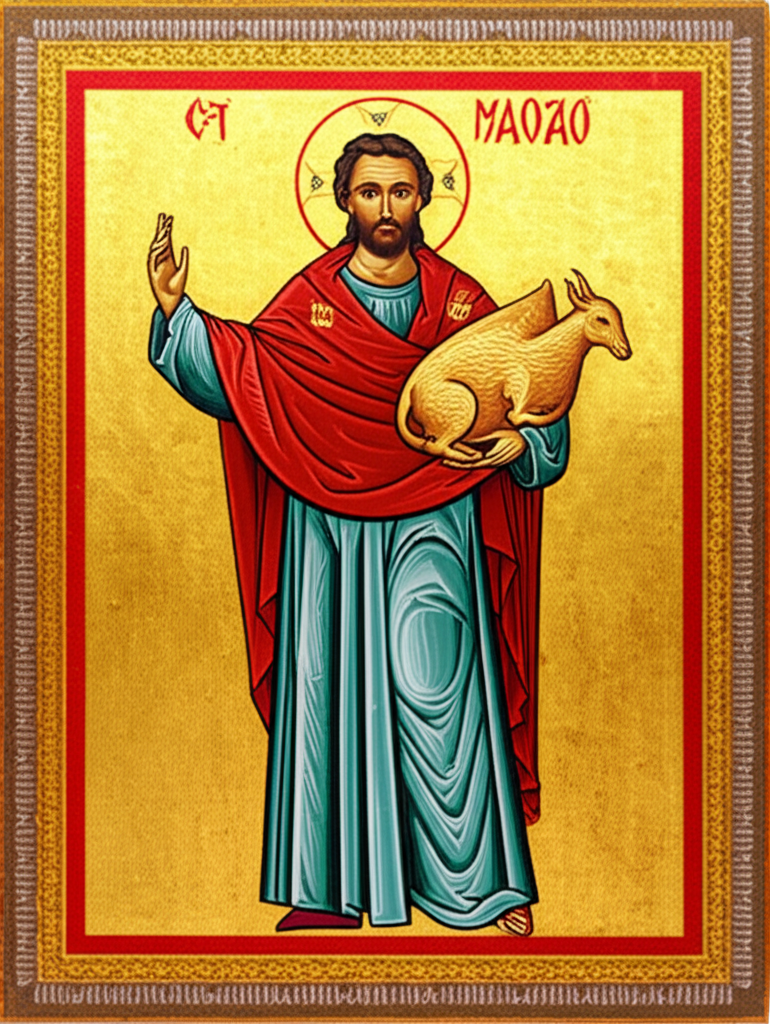
Leviticus chapter 3 kjv
- 1 And if his oblation be a sacrifice of peace offering, if he offer it of the herd; whether it be a male or female, he shall offer it without blemish before the LORD.
- 2 And he shall lay his hand upon the head of his offering, and kill it at the door of the tabernacle of the congregation: and Aaron's sons the priests shall sprinkle the blood upon the altar round about.
- 3 And he shall offer of the sacrifice of the peace offering an offering made by fire unto the LORD; the fat that covereth the inwards, and all the fat that is upon the inwards,
- 4 And the two kidneys, and the fat that is on them, which is by the flanks, and the caul above the liver, with the kidneys, it shall he take away.
- 5 And Aaron's sons shall burn it on the altar upon the burnt sacrifice, which is upon the wood that is on the fire: it is an offering made by fire, of a sweet savor unto the LORD.
- 6 And if his offering for a sacrifice of peace offering unto the LORD be of the flock; male or female, he shall offer it without blemish.
- 7 If he offer a lamb for his offering, then shall he offer it before the LORD.
- 8 And he shall lay his hand upon the head of his offering, and kill it before the tabernacle of the congregation: and Aaron's sons shall sprinkle the blood thereof round about upon the altar.
- 9 And he shall offer of the sacrifice of the peace offering an offering made by fire unto the LORD; the fat thereof, and the whole rump, it shall he take off hard by the backbone; and the fat that covereth the inwards, and all the fat that is upon the inwards,
- 10 And the two kidneys, and the fat that is upon them, which is by the flanks, and the caul above the liver, with the kidneys, it shall he take away.
- 11 And the priest shall burn it upon the altar: it is the food of the offering made by fire unto the LORD.
- 12 And if his offering be a goat, then he shall offer it before the LORD.
- 13 And he shall lay his hand upon the head of it, and kill it before the tabernacle of the congregation: and the sons of Aaron shall sprinkle the blood thereof upon the altar round about.
- 14 And he shall offer thereof his offering, even an offering made by fire unto the LORD; the fat that covereth the inwards, and all the fat that is upon the inwards,
- 15 And the two kidneys, and the fat that is upon them, which is by the flanks, and the caul above the liver, with the kidneys, it shall he take away.
- 16 And the priest shall burn them upon the altar: it is the food of the offering made by fire for a sweet savor: all the fat is the LORD's.
- 17 It shall be a perpetual statute for your generations throughout all your dwellings, that ye eat neither fat nor blood.
Leviticus chapter 3 nkjv
- 1 'When his offering is a sacrifice of a peace offering, if he offers it of the herd, whether male or female, he shall offer it without blemish before the LORD.
- 2 And he shall lay his hand on the head of his offering, and kill it at the door of the tabernacle of meeting; and Aaron's sons, the priests, shall sprinkle the blood all around on the altar.
- 3 Then he shall offer from the sacrifice of the peace offering an offering made by fire to the LORD. The fat that covers the entrails and all the fat that is on the entrails,
- 4 the two kidneys and the fat that is on them by the flanks, and the fatty lobe attached to the liver above the kidneys, he shall remove;
- 5 and Aaron's sons shall burn it on the altar upon the burnt sacrifice, which is on the wood that is on the fire, as an offering made by fire, a sweet aroma to the LORD.
- 6 'If his offering as a sacrifice of a peace offering to the LORD is of the flock, whether male or female, he shall offer it without blemish.
- 7 If he offers a lamb as his offering, then he shall offer it before the LORD.
- 8 And he shall lay his hand on the head of his offering, and kill it before the tabernacle of meeting; and Aaron's sons shall sprinkle its blood all around on the altar.
- 9 'Then he shall offer from the sacrifice of the peace offering, as an offering made by fire to the LORD, its fat and the whole fat tail which he shall remove close to the backbone. And the fat that covers the entrails and all the fat that is on the entrails,
- 10 the two kidneys and the fat that is on them by the flanks, and the fatty lobe attached to the liver above the kidneys, he shall remove;
- 11 and the priest shall burn them on the altar as food, an offering made by fire to the LORD.
- 12 'And if his offering is a goat, then he shall offer it before the LORD.
- 13 He shall lay his hand on its head and kill it before the tabernacle of meeting; and the sons of Aaron shall sprinkle its blood all around on the altar.
- 14 Then he shall offer from it his offering, as an offering made by fire to the LORD. The fat that covers the entrails and all the fat that is on the entrails,
- 15 the two kidneys and the fat that is on them by the flanks, and the fatty lobe attached to the liver above the kidneys, he shall remove;
- 16 and the priest shall burn them on the altar as food, an offering made by fire for a sweet aroma; all the fat is the LORD's.
- 17 'This shall be a perpetual statute throughout your generations in all your dwellings: you shall eat neither fat nor blood.' "
Leviticus chapter 3 niv
- 1 "?'If your offering is a fellowship offering, and you offer an animal from the herd, whether male or female, you are to present before the LORD an animal without defect.
- 2 You are to lay your hand on the head of your offering and slaughter it at the entrance to the tent of meeting. Then Aaron's sons the priests shall splash the blood against the sides of the altar.
- 3 From the fellowship offering you are to bring a food offering to the LORD: the internal organs and all the fat that is connected to them,
- 4 both kidneys with the fat on them near the loins, and the long lobe of the liver, which you will remove with the kidneys.
- 5 Then Aaron's sons are to burn it on the altar on top of the burnt offering that is lying on the burning wood; it is a food offering, an aroma pleasing to the LORD.
- 6 "?'If you offer an animal from the flock as a fellowship offering to the LORD, you are to offer a male or female without defect.
- 7 If you offer a lamb, you are to present it before the LORD,
- 8 lay your hand on its head and slaughter it in front of the tent of meeting. Then Aaron's sons shall splash its blood against the sides of the altar.
- 9 From the fellowship offering you are to bring a food offering to the LORD: its fat, the entire fat tail cut off close to the backbone, the internal organs and all the fat that is connected to them,
- 10 both kidneys with the fat on them near the loins, and the long lobe of the liver, which you will remove with the kidneys.
- 11 The priest shall burn them on the altar as a food offering presented to the LORD.
- 12 "?'If your offering is a goat, you are to present it before the LORD,
- 13 lay your hand on its head and slaughter it in front of the tent of meeting. Then Aaron's sons shall splash its blood against the sides of the altar.
- 14 From what you offer you are to present this food offering to the LORD: the internal organs and all the fat that is connected to them,
- 15 both kidneys with the fat on them near the loins, and the long lobe of the liver, which you will remove with the kidneys.
- 16 The priest shall burn them on the altar as a food offering, a pleasing aroma. All the fat is the LORD's.
- 17 "?'This is a lasting ordinance for the generations to come, wherever you live: You must not eat any fat or any blood.'?"
Leviticus chapter 3 esv
- 1 "If his offering is a sacrifice of peace offering, if he offers an animal from the herd, male or female, he shall offer it without blemish before the LORD.
- 2 And he shall lay his hand on the head of his offering and kill it at the entrance of the tent of meeting, and Aaron's sons the priests shall throw the blood against the sides of the altar.
- 3 And from the sacrifice of the peace offering, as a food offering to the LORD, he shall offer the fat covering the entrails and all the fat that is on the entrails,
- 4 and the two kidneys with the fat that is on them at the loins, and the long lobe of the liver that he shall remove with the kidneys.
- 5 Then Aaron's sons shall burn it on the altar on top of the burnt offering, which is on the wood on the fire; it is a food offering with a pleasing aroma to the LORD.
- 6 "If his offering for a sacrifice of peace offering to the LORD is an animal from the flock, male or female, he shall offer it without blemish.
- 7 If he offers a lamb for his offering, then he shall offer it before the LORD,
- 8 lay his hand on the head of his offering, and kill it in front of the tent of meeting; and Aaron's sons shall throw its blood against the sides of the altar.
- 9 Then from the sacrifice of the peace offering he shall offer as a food offering to the LORD its fat; he shall remove the whole fat tail, cut off close to the backbone, and the fat that covers the entrails and all the fat that is on the entrails
- 10 and the two kidneys with the fat that is on them at the loins and the long lobe of the liver that he shall remove with the kidneys.
- 11 And the priest shall burn it on the altar as a food offering to the LORD.
- 12 "If his offering is a goat, then he shall offer it before the LORD
- 13 and lay his hand on its head and kill it in front of the tent of meeting, and the sons of Aaron shall throw its blood against the sides of the altar.
- 14 Then he shall offer from it, as his offering for a food offering to the LORD, the fat covering the entrails and all the fat that is on the entrails
- 15 and the two kidneys with the fat that is on them at the loins and the long lobe of the liver that he shall remove with the kidneys.
- 16 And the priest shall burn them on the altar as a food offering with a pleasing aroma. All fat is the LORD's.
- 17 It shall be a statute forever throughout your generations, in all your dwelling places, that you eat neither fat nor blood."
Leviticus chapter 3 nlt
- 1 "If you present an animal from the herd as a peace offering to the LORD, it may be a male or a female, but it must have no defects.
- 2 Lay your hand on the animal's head, and slaughter it at the entrance of the Tabernacle. Then Aaron's sons, the priests, will splatter its blood against all sides of the altar.
- 3 The priest must present part of this peace offering as a special gift to the LORD. This includes all the fat around the internal organs,
- 4 the two kidneys and the fat around them near the loins, and the long lobe of the liver. These must be removed with the kidneys,
- 5 and Aaron's sons will burn them on top of the burnt offering on the wood burning on the altar. It is a special gift, a pleasing aroma to the LORD.
- 6 "If you present an animal from the flock as a peace offering to the LORD, it may be a male or a female, but it must have no defects.
- 7 If you present a sheep as your offering, bring it to the LORD,
- 8 lay your hand on its head, and slaughter it in front of the Tabernacle. Aaron's sons will then splatter the sheep's blood against all sides of the altar.
- 9 The priest must present the fat of this peace offering as a special gift to the LORD. This includes the fat of the broad tail cut off near the backbone, all the fat around the internal organs,
- 10 the two kidneys and the fat around them near the loins, and the long lobe of the liver. These must be removed with the kidneys,
- 11 and the priest will burn them on the altar. It is a special gift of food presented to the LORD.
- 12 "If you present a goat as your offering, bring it to the LORD,
- 13 lay your hand on its head, and slaughter it in front of the Tabernacle. Aaron's sons will then splatter the goat's blood against all sides of the altar.
- 14 The priest must present part of this offering as a special gift to the LORD. This includes all the fat around the internal organs,
- 15 the two kidneys and the fat around them near the loins, and the long lobe of the liver. These must be removed with the kidneys,
- 16 and the priest will burn them on the altar. It is a special gift of food, a pleasing aroma to the LORD. All the fat belongs to the LORD.
- 17 "You must never eat any fat or blood. This is a permanent law for you, and it must be observed from generation to generation, wherever you live."
- Bible Book of Leviticus
- 1 Laws for Burnt Offerings
- 2 Laws for Grain Offerings
- 3 Laws for Peace Offerings
- 4 Sacrifies for Sin
- 5 Laws for Guilt Offerings
- 6 The Priests and the Offerings
- 7 Law of the trespass offering
- 8 Consecration of Aaron and His Sons
- 9 The Lord Accepts Aaron's Offering
- 10 The Death of Nadab and Abihu
- 11 Clean and unclean Animals
- 12 Purification After Childbirth
- 13 Laws About Leprosy
- 14 Laws for Cleansing Lepers
- 15 Sperm Discharge and Menstruation cycle
- 16 Day of Atonement
- 17 The Place of Sacrifice
- 18 Unlawful Sexual Relations
- 19 Levitical Laws for Levites
- 20 Punishment for Child Sacrifice
- 21 Holiness and the Priests
- 22 Acceptable Offerings
- 23 The Feasts of the Lord
- 24 The Lamps
- 25 Year of Jubilee
- 26 Blessings for Obedience
- 27 Laws About Vows